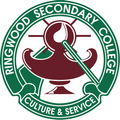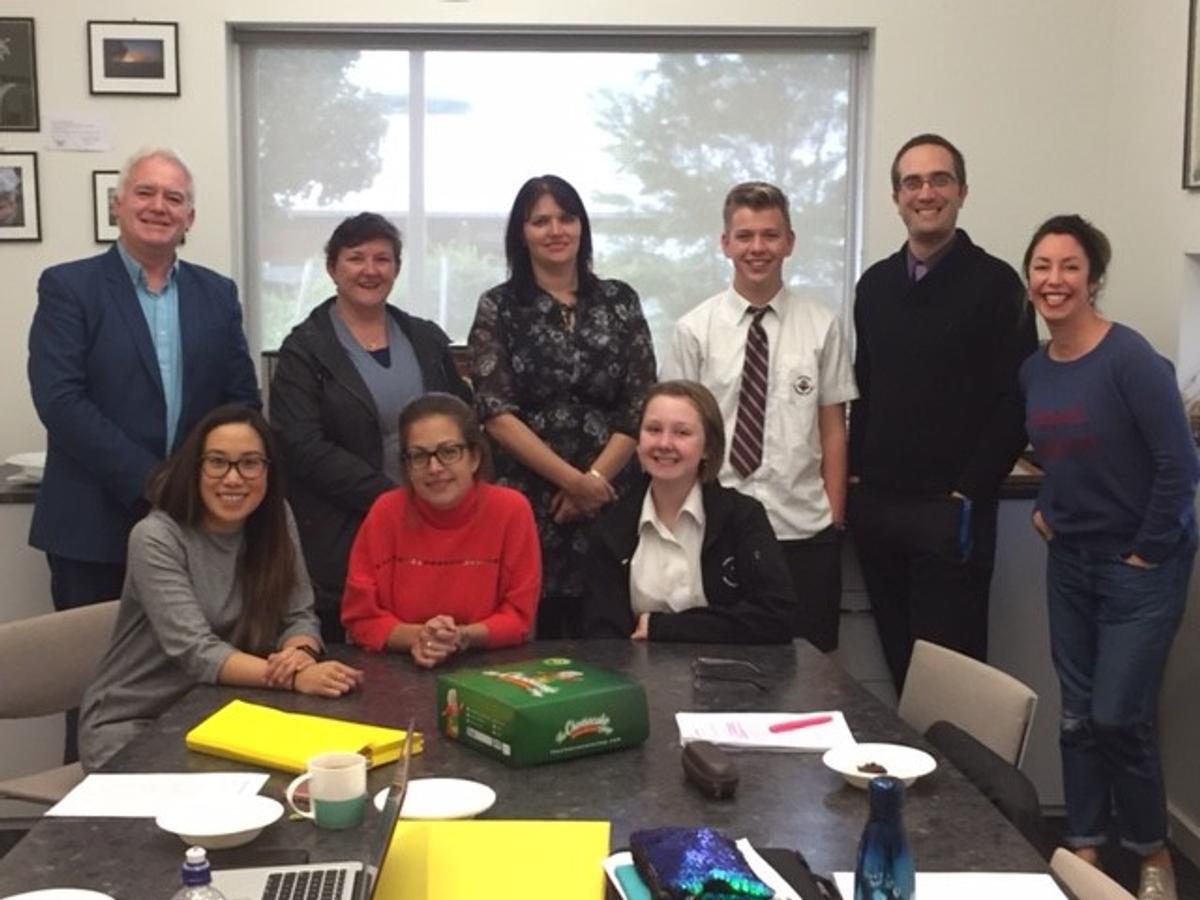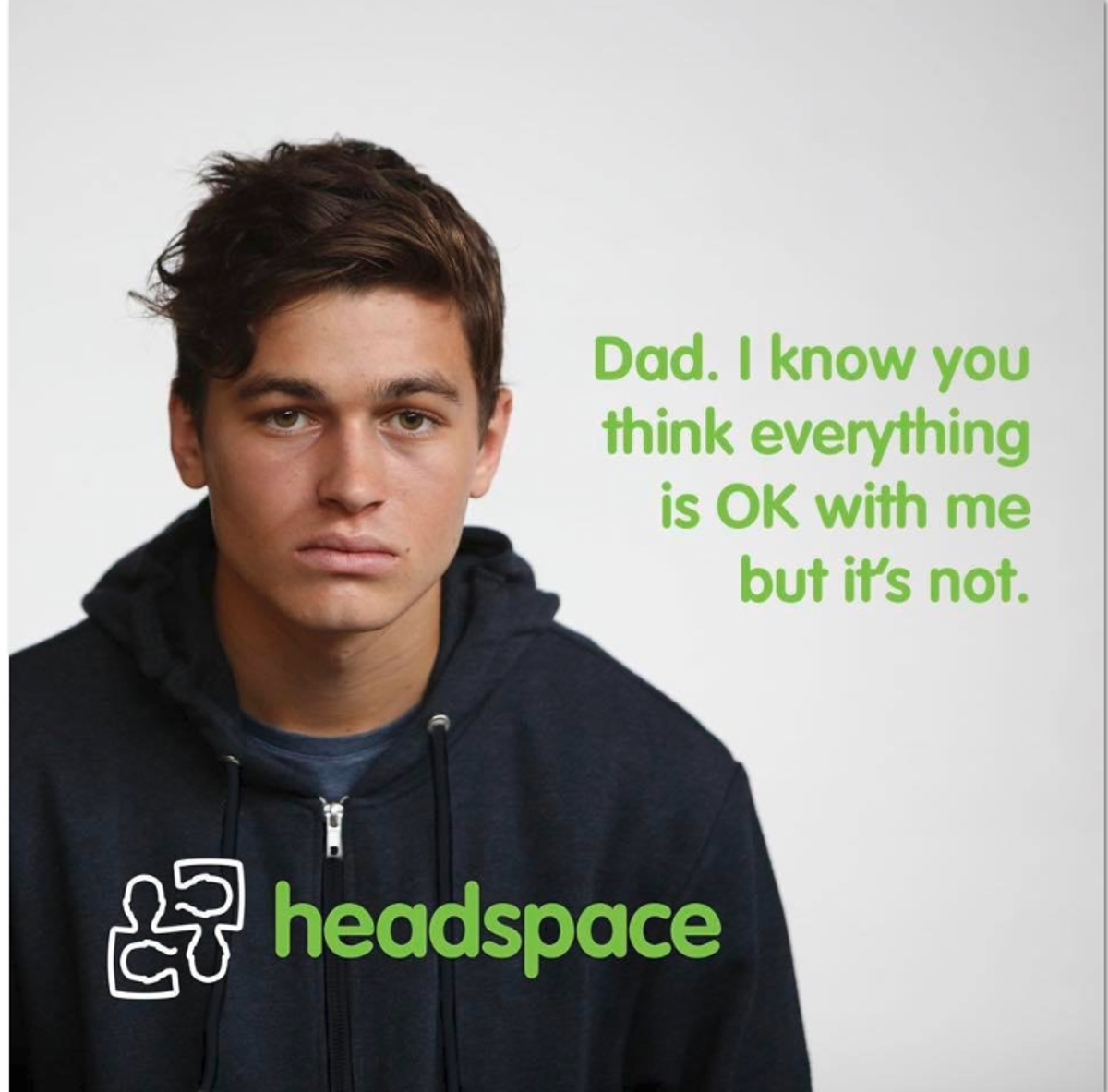Wellbeing

“Some people grumble that roses have thorns;
I am grateful that thorns have roses.”
Alphonse Karr ( 1808-1890) French Writer
Gambling Concerns
Concerned about your teenager?
Today, you can bet online 24/7. And with social media, apps and advertising making it more accessible and attractive to young people, teenagers are at a higher risk of developing gambling problems.
For many young people it isn't about the money. It's about fun, excitement and social acceptance. And because they are so targeted by gambling advertising, betting can seem like a normal activity to them.
Tackling gambling issues with your teenager can be difficult. We can help with information about the changing nature of betting and tips and tools to help you talk to your teenager about gambling.
What to look out for
There are signs to look for if you think your teenager has a problem with betting. They may:
- seem flat or down and spend less time with friends or doing things they normally enjoy
- be obsessed with simulated gambling apps and games
- spend lots of time talking about betting
- be more moody and seem stressed out when not gambling
- have arguments at home about money and their betting
- obsess about betting or the odds more than focusing on the sport when watching a game
- lie or be secretive about their betting
- miss school or fall behind because of time spent gambling
- borrow or ask for money from family and friends
- continue to gamble to win back money they have lost.
What you can do
Talk about it
If you think your teenager has problems with gambling, talk to them about it.
Our Gambler's Help Youthline can give you advice on how to approach the conversation. Call 1800 262 376.
Make sure you choose a time to raise the subject when you can talk in private and you and your teenager are both calm. The most important thing is to be non-judgemental.
You could say you have noticed they:
- have stopped doing things they used to enjoy
- have stopped spending time with family and friends
- are spending a lot of time on gambling apps and games
- seem to focus more on the odds than on the game when watching sport
- are spending more money than usual
- are spending less time on schoolwork and getting lower grades.
Listen to what they have to say. They may be relieved to talk about it.
If they ask for help, work together on a plan to help them take back control. It could start with:
- looking at this website together
- working out ways they can focus on other important things in their life, and how they can manage their money to limit or stop their betting
- calling our Gambler's Help Youthline on 1800 262 376 to find out how to get counselling, advice and support. Your teenager could call or you could call together.
If they are defensive and don't want to talk about it, you could call our Gambler's Help Youthline on 1800 262 376 to talk about how the conversation went and what you could do next to help the situation.
Our guide What's the big deal? Talking to teens about gambling has information, tips and tools to help with the conversation.
Download the guide (PDF - 859.9 KB)
You can also read more about:
Online safety
You may want to consider blocking access to gambling websites using a filter.
Two popular filters are:
You can also install internet monitoring software like:
Reputable gambling sites also offer self-exclusion programs where you can ban yourself from their site.
The Australian Government's cybersmart website has information for parents and kids about online games and staying safe online. You can also download a cybersafety help button, which is a free app that links to counselling and educational resources[SP1] .
Access to money
Consider who in your family has access to your credit or debit cards, and whether any of these cards are linked to accounts that your teenager accesses, such as accounts for downloading music.
Virtual gaming and gambling websites regularly offer purchased credits or rewards, and it's not always obvious that these purchases relate to real money.
You may want to set up alerts to come to your phone for new purchases so you can track your teenager's smartphone or tablet spending.
Getting help
For more information about getting help if a teenager close to you has a gambling problem, see:
- Young people
- How you can help yourself and your family
- How you can help someone with a gambling problem.
You can also call Gambler's Help on 1800 858 858 or Gambler's Help Youthline on 1800 262 376 for free, confidential, professional advice and support. These phone lines are open 24 hours a day, seven days a week.
If you would like to chat live with a counsellor online, visit Gambling Help Online. This service is also available 24/7.
Find out more about the many ways to get help.
http://www.responsiblegambling.vic.gov.au/__data/assets/pdf_file/0019/26092/FACT-SHEETS_-Signs.pdf
There are also the following tip sheets on Problematic Internet use:
http://www.education.vic.gov.au/Documents/about/programs/bullystoppers/smproblematic.pdf
https://www.niira.org.au/the-improve-tool
Karen Hallam
Social Worker- Wellbeing & Careers
E: khallam@ringwoodsc.vic.edu.au
Available-Mon-Thurs
Respectful Relationships Update
Background
The Statewide Respectful Relationships & Gender Equity initiative currently taking seed throughout Victoria aims to reduce Australia’s Family Violence problem.
Current Australian statistics regarding domestic violence are alarming:
- One Australian woman dies nearly every week from spousal abuse.
- Intimate partner violence is the largest contributor to ill-health in Australian women aged 18-44 (more than tobacco, drugs, cholesterol, cancer, or the road toll).
- Family violence costs the Australian economy $21.7 Billion per year in health, administration, and social welfare.
The Victorian Government recognises these statistics as unacceptable and has committed to creating deep cultural change through community awareness, education, and targeted programs. The Government’s first step was to activate a Royal Commission into Family Violence which has resulted in 227 recommendations for reform. These recommendations have triggered the most comprehensive, cross-sectorial, reform initiative regarding Family Violence that Australia, and the world, has seen.
Research conducted by the Royal Commission indicates that Family Violence is preventable and is deeply rooted in persistent gender power imbalances in our society. Research suggests that equalising this power imbalance will reduce the current rates of Family Violence.
The Role of Education:
The Royal Commission identified schools as being perfectly positioned to play a critical role in changing negative attitudes toward girls and women - attitudes that are believed to contribute to violence. It is recommended that schools work harder to teach Respectful Relationships to all students, and promote gender equity in all aspects of their school communities. It is hoped that through such education our young Australians will drive deep cultural change throughout our society as they mature into adults.
RSC Leading the Way… Next Steps
Ringwood Secondary College is committed to supporting the Respectful Relationships and Gender Equity initiative, and being part of the solution toward ending Family Violence for future generations. Ringwood Secondary College is committed to creating a school community where girls and boys, men and women, are respected as true equals (by themselves and by others) and ALL community members are protected from any form of discrimination.
Ringwood Secondary College has nominated itself to be a “leader” school in this campaign, and has set up a Respectful Relationships and Gender Equity Committee made up of the Principal, Wellbeing Coordinator, four key teachers, two parents, and three students. The Committee will seek to ensure Ringwood Secondary College provides an environment where equality and respect are promoted both inside and outside of the classroom.
The Committee will seek to engage staff students and parents, and explore all levels of school life to ensure we are providing an empowering and respectful environment for all.
This project will be long-term and evolving, as a comprehensive and meaningful action plan will take time to develop. Our next task will be to conduct an audit of how Respectful Relationships and Gender Equality are currently promoted within the school, and identify areas for improvement. This audit will inform our plans for further action.
Who to Contact for Further Information
The Committee will endeavour to regularly update our school community on this project, and welcomes all ideas and contributions. You can contact the project Coordinator at jnordlinger@ringwoodsc.vic.edu.au
Maroondah City Council Youth Strategy
Maroondah City Council's new draft Youth Strategy is open for feedback from the community!
The draft Youth Strategy will replace the Maroondah City Council Youth Plan 2012-2016 as Council’s key strategic document in regards to young people aged 10-25 who live, work, study or play in Maroondah.
Extensive community consultation and research informed the development of the draft Youth Strategy, including consultation with over 5000 young people, as well as youth service providers, parents / carers, and community members.
We are now seeking feedback on Maroondah City Council's new draft Youth Strategy, and we’re especially keen to hear from young people.
For further information, please contact Heather Cummings, Youth Planning & Policy Officer, on 9294 5707 or heather.cummings@maroondah.vic.gov.au
Copies of the draft Youth Strategy are available online (see link below) and in hard-copy at Council's Service Centres and libraries. For info on how to provide feedback, check out the link below:
http://www.maroondah.vic.gov.au/DraftYouthStrategy.aspx
We look forward to hearing what you think!
Volunteering option -Animal Aid
Thinking of getting a new member of the family? Or just want to help an animal shelter?
Animal aid is the place.
Adopting a pet is great; you help give an animal a better life while also bringing joy into the family. If you don’t want to adopt but want to help, you can always donate to the shelter.
Aimee Platts
Wellbeing Prefect.
VOLUNTEERING
Volunteering is a great way to:
- Contribute to your community
- Learn new skills
- Build up your work experience
- Make new friends
- Have fun
The rewards you get for putting something back into your community are limitless.
Types of volunteering
When choosing where to volunteer, it helps to pick an area that interests you or where you would like to make a difference in your community. Some ideas for volunteering include:
- Working on an environmental project in your local area
- Visiting a sick or elderly person
- Joining a volunteer emergency services group (like the CFA or the SES)
- Delivering meals to elderly people or people with a disability
- Getting involved in human rights and social justice
For other ideas about where to volunteer and what you could do, visit:
- Our Organisations seeking volunteers page
- Our Volunteer for an annual event page
- The I Can Do That! Find a volunteer Oopportunity tool (new window).
Volunteering gives you work experience
Volunteering is an excellent way to learn new skills. It can also help add experience to your resume if it's looking a little thin.
As a volunteer you can show employers you:
- Can take the initiative
- Can work independently and as part of a team
- Have a positive attitude towards work
- Are community-minded
Sometimes paid work can become available at an organisation where you're volunteering. You might also meet other volunteers who can help you find work through their own networks.
http://www.youthcentral.vic.gov.au/jobs-careers/volunteering-work-experience/volunteering
Charlie Hetherington
A lot of things go unsaid between young people and their parents, especially when it comes to mental health. The headspace Fathers Campaign aims to open up conversations between parents and young people, particularly fathers and sons, so young people find the love, care and support they need as early as possible.
And remember, if you’re not sure how to get the conversation started you can find tips and advice at www.ruok.org.au/how-to-ask
Ms Sharlene (Charlie) Hetherington
Student Wellbeing Co-ordinator



